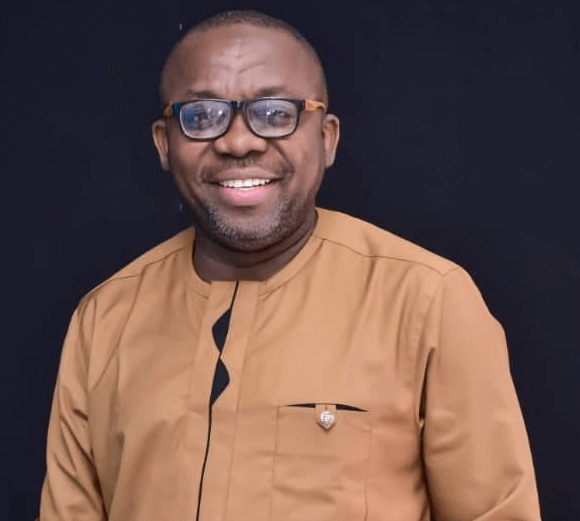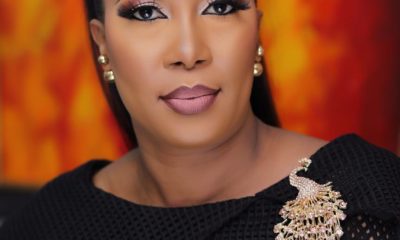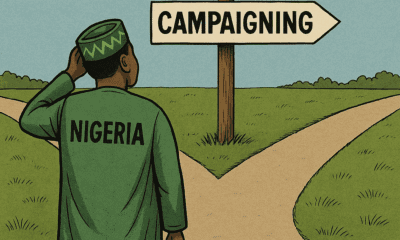National Issues
Designation as Country of Particular Concern: Nigeria Should Seize this Opportunity or Rue it -By Leo Igwe
Nigerians should encourage the reformation of Islam. Many Islamic teachings are outdated and out of step with 21st-century life, norms, and outlook. Efforts must be made to further the criticism of Islam, including critical study, analysis, and inquiry into its origins and spread, and a critical examination of Islamic sacred texts such as the Quran and the Hadith. There should be a revision of school textbooks and the removal of texts that promote religious hate, intolerance, and violence.

It is a delight that at last the mindless violence, killing, and bloodletting in Nigeria is getting the international attention that it deserves. Humanists and other non-religious Nigerians welcome the designation of Nigeria as a country of particular concern because the Nigerian government has consistently ignored or enabled egregious violations of freedom of religion or belief (FoRB) in the country. The response from the Nigerian government has been disappointing but not surprising. Instead of exploring how to use this opportunity to address the problem, government officers and supporters have been out on social and mainstream media offering excuses and denials, downplaying the atrocities that Islamists commit. In this piece, I address some of the reactions to the designation.
First, some people have argued that Trump focused mainly on the killing and persecution of Christians, and that the statistics he used were not accurate. They claim that muslims are also being killed.
Look, is the issue whether muslims are being murdered or not? Anyone conversant with the history of Islam globally and in Nigeria in particular knows that jihadist attacks since the time of the Prophet of Islam, to the time of Uthman dan Fodio, have always targeted real or imagined non-believers, including those who identify as ‘muslims’. In Nigeria, Islamists attack and kill those they categorize as non-believers, including traditionalists, atheists, agnostics, and nones.
That said, what is wrong with using a significant sample of the persecuted to highlight or address a wider problem? The target is not the persecuted but the persecutors, and violators, the Islamic terrorists who are rampaging the country. The goal is to stop the persecution. Whatever stops the jihadists from attacking and killing Christians would prevent them from killing and attacking others.
Also, much energy has been expended on the idea of military intervention. President Trump made it clear that military intervention is an option in addressing the bloodletting in Nigeria. One hopes it does not get to that stage. Look, Islamist forces are not throwing eggs or ice cream at their targets. Are they?
These militants kill and murder in cold blood. They use guns and other weapons. Trump said, “If the Nigerian government continues to allow the killing of Christians”, the US would militarily intervene…So it was a conditional statement to demonstrate urgency and pressure the Nigerian government to do more. It was a declaration to show that the US was serious and should be taken seriously. Instead of wasting time and energy discussing the possibility and legality of US military intervention, the violation of Nigerian sovereignty, Nigerian authorities and their representatives should get to work and ensure that such a situation does not arise.
On the numbers, it is difficult to get reliable data on the killings and kidnappings in Nigeria. Nigerian authorities downplay the figures because they do not want to look bad or incompetent. If you are in doubt, take a look at what happened with recent cases of kidnapping. It has been difficult to know the exact number of students who were kidnapped in the state of Niger. Some sources have published varying numbers of victims: 200, 215, 300, 303, etc. This incident happened in a school that should have had a record of its students. Now imagine what happens in rural villages and communities where these Islamists raid, attack, kill, and kidnap at night.
Nigeria does not have a reliable database of its population, nor records of births and deaths of its citizens. In some countries, like Germany, everyone is expected to register with the local government where they reside. There is nothing like that in Nigeria. People live and reside anywhere and anyhow. Many people in Nigeria do not know the names of the local governments where they live. And local government officials do not know or care about who resides in their localities. The birth and death of most people in Nigeria are not recorded or documented anywhere. Many Nigerians are born; they live, and die, probably as a result of an accident, sickness, or attacks, unaccounted for. What is out there are figures that are used and manipulated to suit interests.
Nigeria’s official religious demographics are not reliable. Religious politics have made it difficult to have a reliable census and statistics of the religious/non-religious in the country. The same percentage of Christians and muslims is quoted every year as if there are no shifts in the population, in the belief and non-belief patterns. During the census, muslim leaders claim that one does not count muslims; they oppose the inclusion of a section where people indicate their religious affiliation or non-affiliation. We have been told that those who are born into a muslim family or who convert to Islam cannot leave the faith because that amounts to apostasy, which is a crime under Sharia. What applies in Nigeria is this: once a muslim, always and forever a muslim. Non-Muslims, critics, and dissenters cannot express their thoughts or views. That is tantamount to blasphemy, which is also a crime. Islam, as codified in the Sharia law, criminalizes human rights to apostasy and blasphemy to preserve and grow the religion.
Think about it. If no muslim leaves the faith, and no one criticizes its teachings and traditions, the religion will continue to exist and grow. That seems to be the logic that informed criminalizing apostasy and blasphemy. So the Islamic religion literally holds muslims hostage. Under Sharia law, there is no freedom of religion or belief. The persecution of Christians and other religious/belief groups is embedded in Islamic law and politics. In Nigeria, the tree of Islam is watered with the blood, hate, violence, oppression, persecution, and discrimination against Christians and other religious/non-religious constituents.
Islam, as practiced in Nigeria, predominantly thrives on religious freedom violations. Islam is a foreign religion, and to gain a stronghold, Islamic preachers and propagators used mechanisms that replaced, removed, delegitimized, and dispelled existing faiths and beliefs. Islamic faith was not introduced in a vacuum. It was introduced to people and societies that had their own religions and beliefs. To get the people to embrace Islam, the preachers and propagators used symbolic, structural, and physical violence. They dismantled structures of other faiths and, in some cases, killed the adherents, including those who refused their version of political Islam.
This campaign against religious freedoms is called a jihad or a holy war. Holy, in this case, is an epithet to legitimize and sanctify criminality, kidnapping, arson, enslavement, and bloodletting in the name of Allah. Islam owes its political domination and spread in Nigeria to jihads, especially the 1804 Jihad of Sheikh Uthman dan Fodio. Although some muslims are peaceful and denounce violence, killing of real or imagined non-believers, structural and physical violence are strong elements in the propagation of Islam. Boko Haram militants and other jihadist groups waging a campaign of terror and violence against non-believers, including slacked muslims, are continuing a tradition of violence that has been there since the origin of Islam.
In Nigeria, these violations are driven by two narratives, supremacism and xenophobia. Political Islam in Nigeria is rooted in religious absolutism and superiority. Muslims regard their religion as absolutely true, the best and perfect religion, and the culmination of revelation, as personified in their prophet, whom they regard as the greatest and the epitome of prophethood. To Muslims, Islam is not a religion, Islam is the religion. As they say, Islam is a total way of life. They see Judaism and Christianity as inferior faiths. Jews and Christians are those who have not fully embraced the true faith. Of course, non-belief in Islam is haram.
Non-believers are forbidden individuals who must be converted, killed, or imprisoned. Muslims do not recognize traditional religion, and other faiths that aren’t a part of the religion of the book. Traditionalists are as good as non-believers. Muslims relate with a sense of superiority and politically seek to rule and dominate professors of other beliefs. Other believers must submit and take their subordinate place and position under Sharia law. Religious or belief others who refuse to submit to political Islam become estranged enemies of Islam. Either they flee into exile, are conquered, subdued, or subjugated, or are killed.
Narratives of supremacism and xenophobia contained in the Quran and the Hadith formed the basis of the indoctrination, formation, and upbringing of children and youths. They inform the preaching of clerics in mosques and worship centers. These narratives are codified in school textbooks. They shape the thought, mind, and conscience of muslims. Some years ago, a muslim woman told me that she had memorized the Quran before she could think or reason. That she could not think or reason outside the Quran. That is the predicament of most muslims and religious people. It is challenging for them to think or reason outside the Quranic, Biblical, or religious boxes.
It is important to note that religious supremacism and xenophobia have ethnic connections and dimensions in Nigeria. Religions are linked to ethnic hegemonies. Political Islam is associated with Hausa-Fulani political domination, while political Christianity is perceived as an Igbo hegemonic tool, even though other ethnic constituents profess these religions.
Millions of muslims in Nigeria act in solidarity with their counterparts in the Middle East. Muslim extremists vent their anger and frustration over incidents like the killing of Osama bin Laden or the publication of Muhammadan cartoons by attacking and killing Christians. Whilst some Christians openly support actions and policies of Western governments and Israel, as in the war in Gaza. This atmosphere of religious division, antagonism, and rivalry prevails in Nigeria and provides a subsoil for the persecution of Christians and other non-Muslims and the Islamist attacks and killings.
On the way forward, it is pertinent to discard this binary approach to religious discourse in Nigeria. Nigeria is a nation of muslims, Christians, traditional religionists, followers of Judaism, Guru Maharijists, Grail Messengers, Bahai faithfuls, free religious, non-believers, etc.
Millions of people in Nigeria do not believe in god, in Christianity, or in Islam. Millions are non-religious or non-theists. They do not take religion seriously. Many people in Nigeria are free religious or non-religious but find themselves in a country where they are compelled to identify as Christians or muslims, or are caught up in this binary religious and political situation where they are categorized, attacked, or killed as muslims or Christians.
Nigeria’s religious demographics, often presented as about 50 percent muslims and 50 percent Christians, are fake and misleading. They are without merit and credibility. Theocrats use and manipulate the figures to favour muslims in the north and Christians in the south. Many Nigerians identify as muslims or Christians out of fear of being killed or discriminated against.
Nigeria needs to organize a credible census devoid of intimidation and coercion of people to identify as religious, as Christians, or muslims. Nigeria needs a database of information about its citizens. There is a need for an inclusive interfaith dialogue to facilitate understanding and cooperation among people of all faiths and none. The country needs a dialogue that encourages and highlights practices that foster interreligious harmony, tolerance, and peaceful coexistence.
More education is needed to reorient Nigerians on FoRB. There is a misunderstanding of this human right. As part of the awareness, religious Nigerians should be made to understand that freedom of religion entails freedom to profess or renounce a religion. And there is no FoRB in a society where individuals cannot change or abandon their faith or freely hold or express critical or dissenting views.
Efforts must be made to abolish apostasy and blasphemy laws and ensure a separation of mosque and state. Apostasy and blasphemy laws are incompatible with human rights. They are weapons for religious oppression and persecution. Equal rights and freedoms of muslims and non-Muslims cannot be guaranteed in a situation where the state implements Sharia law. The state should be religiously neutral, unbiased against any faith or belief. Nigeria needs one law for all, not one law for muslims and another for Christians.
The government must end impunity and ensure punishment for jihadists and Islamists. State authorities should arrest and prosecute those who attack, kill, or perpetrate violence and other criminalities in the name of Islam, including those who attack or kill blasphemers, apostates, and desecrators of the Quran.
Nigerian authorities need to monitor Quranic schools and mosques because these places are not only for education and worship, but they are breeding grounds for terrorists, militants, and jihadists. The government should arrest and prosecute clerics, sheikhs, Quranic school teachers, and managers who incite violence and hatred in the name of Islam. They should close down schools and mosques that are used to further jihadist narratives and attacks.
Nigerians should encourage the reformation of Islam. Many Islamic teachings are outdated and out of step with 21st-century life, norms, and outlook. Efforts must be made to further the criticism of Islam, including critical study, analysis, and inquiry into its origins and spread, and a critical examination of Islamic sacred texts such as the Quran and the Hadith. There should be a revision of school textbooks and the removal of texts that promote religious hate, intolerance, and violence.
So, Trump’s designation of Nigeria as a country of particular concern is an opportunity to address pervasive religious freedom violations in the country. Nigeria should seize this opportunity or rue it.
Leo Igwe is a humanist and scholar of religion.










